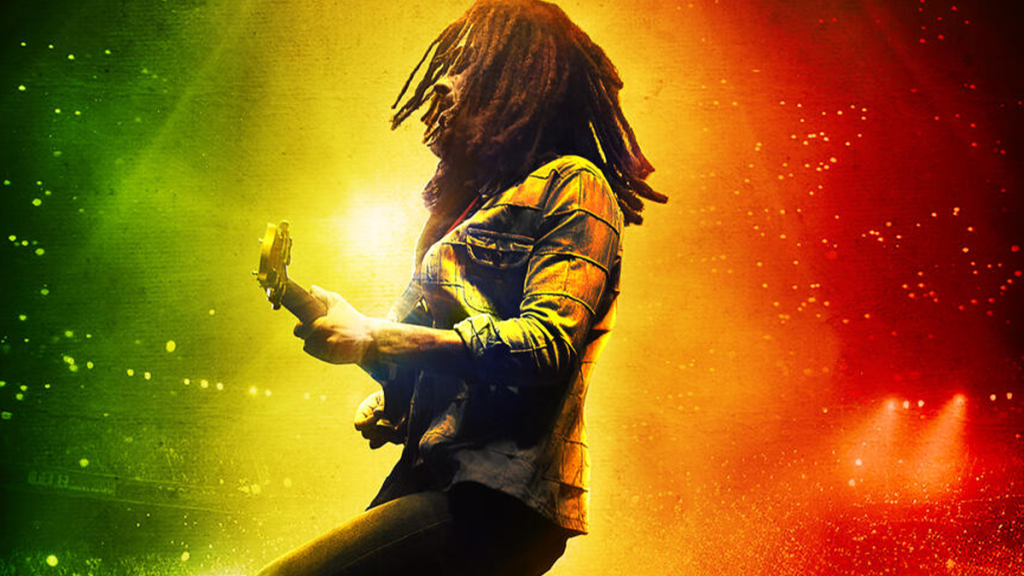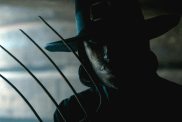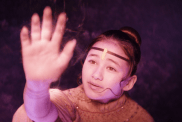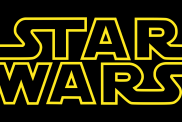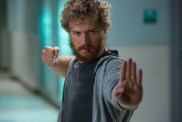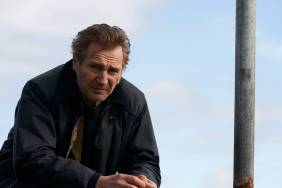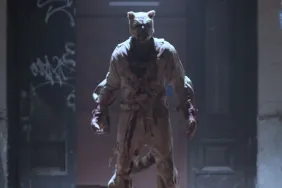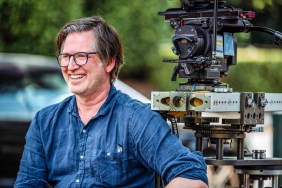ComingSoon Editor-in-Chief Tyler Treese spoke with Bob Marley: One Love director Reinaldo Marcus Green about the reggae biopic. The filmmaker discussed using patois in the film and how he works alongside actors to get the best performances. The film is now available digitally and will be released on 4K Ultra HD, Blu-ray, and DVD on May 28, 2024.
“Bob Marley: One Love celebrates the life and music of an icon who inspired generations through his message of love and unity,” reads the movie’s synopsis. “On the big screen for the first time, discover Bob’s powerful story of overcoming adversity and the journey behind his revolutionary music.”
Tyler Treese: Reinaldo, congrats on Bob Marley: One Love. I really enjoyed the film and wanted to get your reaction to the success that has come after it did so well at the box office and has amassed such support. How has it been, seeing fans really respond positively to this work?
Reinaldo Marcus Green: I mean, it’s why we make movies, so that’s super exciting. It’s amazing. I’m not on any of the social channels, so I don’t get the play-by-play, but I get the occasional text message from someone that’s seen it and tells me that they’ve enjoyed the movie or they loved it, or they saw it with friends. So that’s been great.
I think the studio’s really happy with the box office success, and the family’s really happy with the film. Collectively, it’s just an amazing feeling to have something that people are responding to. It’s inherent in the title — One Love is something that we wanted to share and feels like it’s been received exactly as planned in that way. That’s a blessing in disguise, for sure.
One thing that I really liked about the film was the authentic use of patois throughout. You didn’t do the subtitles, and I was curious about that. Even when people couldn’t really understand some of the words, I feel like through the acting, you still got the emotion of every scene. Could you speak to the approach of going authentic with it and not using subtitles? Everybody I’ve spoken to wasn’t even bothered by it — even if they missed some stuff, they still got the meaning of every scene,
1000%. I think, as a filmmaker, and actually beyond the directing as a writer or co-writer on the film, I’m always trying to … if I stripped all the dialogue out of the film, could people understand it? And that’s emotion. That’s Charlie Chapman. That’s going back to the days of early cinema — dialogue’s only gotten in the way! [Laughs]. We’re always trying to do more with less. That’s just going back to film school, going back to the roots. We knew we had the challenge of language in this film; what you don’t want to do is confuse people. I think that’s tricky, when someone’s leaning in trying to understand it and getting confused by that. It’s a fine line between confusion and flavor.
And we danced that line for a good long while into the edit. Actually, so much so that we certainly had to pull back in some areas that caused confusion because of the language, and then areas that it was cool and added to the flavor and to the authenticity of it. The mental math that I had going into the film was if you understand, as a viewer, every third word, you totally get it. You don’t question it. If you understand every fourth word, you’re confused. So that’s the line we had to toe. We were dangerously in the four and five area for a long time, but I would much rather embrace that because that’s totally closer to the reality than going into the one-to-two area.
We dialed it in in post. We had, fortunately, the opportunity to go back and get some stuff. ADR is our friend, and we used every tool at our disposal to dial the language in a place that we felt did justice to Bob, his family, the music, Kingsley [Ben-Adir]‘s performance … outside of Kingsley, everyone else is Jamaican. Lashana [Lynch] is Jamaican. I think Tosin Cole ‘s not Jamaican, obviously James Norton’s not Jamaican, but outside of that, it’s an entirely Jamaican crew.
So for them, it was easier because they’re able to articulate their patois a little cleaner if need be. My mother’s Puerto Rican. I could not understand her if she doesn’t want me to understand. She could speak like a whole different kind of Spanish, and then there’s the Spanish I’m supposed to understand. So I think that’s interesting. In patois there’s levels to it. To answer your question, it was a team effort to dial in the language, which you heard, but we certainly leaned into the authenticity of it because I don’t think Bob would’ve had it any other way.
I think you found a really great balance. I was curious about post, because on the digital release and the 4K, there are eight deleted and extended scenes. How was it finding the film in the editing process? I imagine it’s very difficult to cut scenes when you have performances on this level.
Well, it’s interesting. Eight sounds like a lot, and it is, but when you delete one part of a story, it’s like Jenga, you know? None of the other pieces work, no matter how great they are. You’ll notice in those eight scenes, they’re pretty much storylines. And so once one part of the storyline left, it’s really hard to keep the other ones. We had to kill our darlings, so to speak, which is always always hard. But it didn’t feel like we didn’t know what the movie wanted to be — the movie we were making couldn’t absorb all of those storylines. It made it easier and cleaner just to lose it all and see if the movie worked without them.
And ultimately, it’s like … if you’re cooking, you don’t need that ingredient for it to be good. I like Tabasco sauce on my eggs. [Laughs]. But you don’t need it. [Laughs]. And I think, ultimately, it’s like that. Yes, we had things that tasted really good for a subset of the population, but we were making a global film and everything had to work for that. Those were the decisions that went into leaving some things on the cutting room floor. And fortunately for us, we have home TV entertainment, so people can go and watch those deleted scenes and see the choices we made and go get another version of the movie and learn more about Bob.
One of the reasons I’m excited to rewatch it is because there’s some cool symbolism with the burning fields, the, the shooter in the crowd, and the horse. Um, Can you talk about your approach that? For the most part, this is a realistic take on a biopic. How was it sprinkling in the symbolism throughout the film?
That was the most exciting for me because it felt like a blank canvas. When you’re doing a biopic, you’re trying to stay as truthful to the facts as you can. You’re trying to find the common denominators in all the stories, but a vision is a vision. It really was free in the sense that it could be whatever it wanted to be. Once there was sort of the idea of young Bob running from the sins of his past, so to speak … he was running from something in his life. We come to know what that is or who the man on the horse is, but once, once we established that that was the language, then it was finding how to connect that to the music in the film.
How does it not feel like an addendum to the movie, but part of the movie [and] part of what he’s struggling with? Then that symbolism became really woven into the fabric of the film. That was the most freeing part, for me as a filmmaker — to really feel like we could capture this lyricism, this poetic nature of Bob, this unpredictable nature of Bob. When you see him dancing and it feels like you could never repeat that. It’s not choreographed. He’s literally like in a trance. How do you create some feeling of that? This spirituality, and wrap it around something that felt grounded, like a young boy and an absentee father, which probably caused the biggest pain and, void in his life and the thing that he was running from?
To answer your question, I think those visions were probably the most fun for me, as a filmmaker, to make. It was also Robert Elswit shooting fire. He won for There Will Be Blood, so it was like, “I get to have Robert Elswit shoot fire.” It was fun. It was exciting. It’s visually stunning and it has this metaphor and this poetic nature to it that really, I think, adds depth and a layer to the film that, otherwise, [it] maybe wouldn’t have.
One thing I’ve seen with your past couple films is you get such remarkable performances out of your leads, and these are already great actors and we’re seeing them give incredible performances. Joe Bell blew me away and Will Smith was in Incredible in King Richard. This is such a showcase for Kingsley’s ability. Can you speak to the collaborative process of really getting the best out of your actors? Obviously they’re so talented, but something special happens with these films.
Well, thank you for that — it means a lot. That’s hopefully one of my skill sets and strengths as a filmmaker. Even from film school, I was trying to establish myself as an actor’s director. I wasn’t an actor per se in the sense that I went after it, but I acted in a couple of short films and maybe I could have chosen that path. I didn’t choose it, but I could have, and I really love acting. I love actors and I hope they feel that, when they meet me, I have a sensitivity to them. There’s an understanding that … they feel naked, you know? They’re lonely and scared and it’s scary out there, you know? I think there’s a lot of assumption that, “Oh, just get in front of the camera and say the lines,” and there’s an assumption about what an actor does or what they have to go through to really dive into it.
And it’s really complicated. And I couldn’t do it. There’s no way I could do what Kingsley did in that film. I couldn’t even come close, but I can certainly coach that. I think part of it is understanding the limitations and when they happen or trying to anticipate them and being a support system for your actors. For me, I find it’s like … it’s building culture. And that culture is not just one film, like you said. It’s several films. I’m coming into this now — this is my fourth feature film. I’m coming into it having established the notion that I work really well with actors, so actors understand that. By virtue of Will Smith winning an Oscar, there’s also a pedigree that comes with that, too. So a player that’s playing for Bill Belichick knows that they’re playing for Bill Belichick. [Laughs].
There’s not like a conversation like, “Hi, I’m Bill.” It’s just like, come into this world. And you know that the level is here, and I’m sure [it’s] the same of any great filmmaker that’s establishing themselves — there’s just an understanding that there’s a culture here of working hard. There’s a culture here of love, and you’re coming into something that’s going to feel very supportive. It’s hard to explain culture in the sense that you’re providing your athletes or your actors with a space to be successful. So if you feel that you can get the most out of your players, and that’s how I feel. I feel like I can get the most out of what they’re willing to give me. Even those that aren’t willing to give, it’s like, “How do I still get it?”
And it’s a little bit of “Jedi mind tricks” sometimes and crazy stuff that we have to do and things that, maybe, they don’t even understand. Sometimes I have to give another actor a note to get a performance out of the other actor. Sometimes it’s giving it to your offensive coordinator so that they can tell them. Sometimes it’s you, it comes from so many different ways and it’s literally, “What are the chips you have on the table? Who are the players you have?” Fortunately for us, it’s picking great players and 95% of it, if not more, is casting. And that casting process is so important — getting the right players, because if you don’t have Kingsley Ben-Adir, you don’t have somebody that can even come close to it … you’d be making a mockery of Bob and his legacy.
Kingsley was willing to do the work, but not only was he willing, he was able. So he had the skill and then he had the willingness to tap into that skill. I can’t do that. I’m not Tom Brady. I can’t go and throw the pass. He can, but I can have Tom believe in himself that he can go down any field with two minutes left and still win the Super Bowl [Laughs]. And like, that’s my job. And it’s a hard job to explain, other than preparedness your willingness to go to the distance with them. Look, I’m on these films typically a year before the actors come on and a year after. They can do 10 movies in the time that I make one. It’s a different ball game for me than it is for them.
But it’s no less important. They play a significant and very important role in my process. I couldn’t do it without them. That’s why I have the most utmost respect for what they’re able to achieve. I tip my cap, because it is really the most daunting thing in the world. Especially playing Bob Marley — that’s nuts. So you have to be a little …[Laughs]. You have to be a little out there to try to even come close, and I tip my cap to Kingsley. He did a magnificent job.
